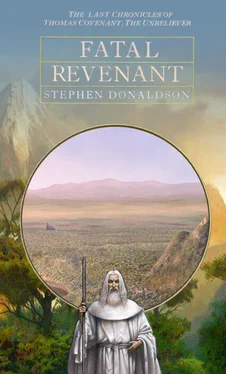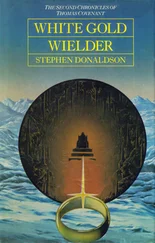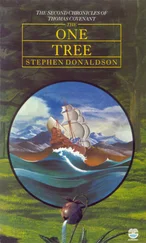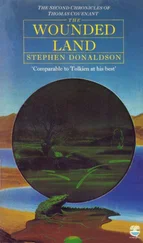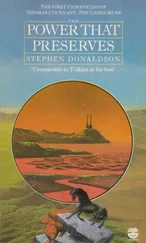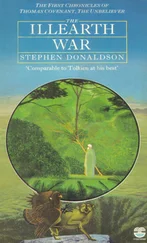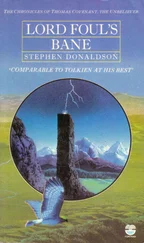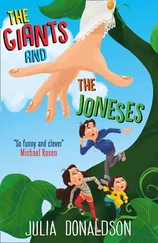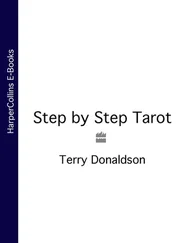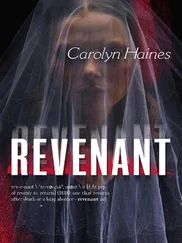She tried to say, Mahrtiir, stop. But she could not force her mouth and throat to form words.
“Many needs press upon you,” he continued, wrenching speech past his wounds. “I ask but one boon. There is no other Manethrall here, and a witness is required. I ask you to stand in the stead of those who lead the Ramen.”
A moment passed before Linden realised that Bhapa was whispering as if he were horrified. “No. No. No.”
With an effort that felt like anguish, she managed to repeat, “I’m here.” She may have been making another promise that she would be unable to keep.
Hoarsely Mahrtiir said, “I am no longer able to bear the burdens of a Manethrall. Among the Ramen, those who have been blinded do not command the deeds of those who see. Cord Bhapa must assume my place. We cannot now perform the full ceremony of Maneing, but your witness will suffice.
“I ask Liand of Mithil Stonedown to remove the garland from my neck and set it upon Bhapa’s.” His woven necklace of yellow flowers, amanibhavam in faded bloom, was splashed with blood. It hung in tatters, but had not been severed. “Then he will take his long delayed place among the Manethralls, and I will serve him and you as I do the Ranyhyn, until my last breath.”
In dismay, Liand flung a look of appeal at Linden. He did not move to touch Mahrtiir’s garland.
Mahrtiir, no. Linden could not find her voice. Please. I can’t do this right now. I can’t let you do it. If she had been able to speak, she might have said, This can wait. Then she might have turned away.
But Bhapa rushed to his feet. Softly, as if he were in tears, he cried. “No, Manethrall. No. I will not. I am not fit for Maneing. And I cannot abide-”
Abruptly he wheeled toward Linden. His eyes were dry, but every line of his face resembled sobbing.
“Ringthane,” he said, pleading with her, “do not permit this. It was not my tarnished sight-the sight which you have healed-that caused me to remain a Cord when others of my years had become Manethralls. It was my hesitancy. I bear uncertainties and doubts which consort ill with decision and command. I follow willingly. I am not suited to lead.”
Linden stared at him. She herself had uncertainties and doubts enough to cripple a legion. But she did not mean to let Jeremiah’s suffering continue unopposed-or unpunished.
However, Bhapa seemed to need no answer from her. At once, he turned back to Mahrtiir.
“And you cannot so lightly set aside your tasks,” he told the Manethrall, “or your yearning to be worthy of tales. You are merely hurt and blinded. You are not unmade. You are a Manethrall blood and bone. It determines you.
“Nor may you set aside the geas that was placed upon you.” The Cord’s passion mounted. “You were informed that you must go far, seeking “your heart’s desire”. And you were urged to return when you had found it, for the Land has need of you. Those words were not granted to me. They were for you alone.”
Anele had spoken to Mahrtiir on the rich grass of Revelstone’s plateau. Linden believed that her friends had heard Thomas Covenant’s voice through the old man.
Bhapa and Pahni had been given a different message. In some way, you two have the hardest job. You’ll have to survive. And you’ll have to make them listen to you.
“Manethrall Mahrtiir,” Bhapa concluded, “I have obeyed you in all things. In this I will not.”
Mahrtiir bared his bloodied teeth. For a moment, he appeared to struggle with imprecations. An involuntary groan wrenched his chest. When he spoke, his voice was taut and raw.
“Then be Ramen, if you will not be Manethrall. Aid Pahni among the Ranyhyn. The needs of the great horses come foremost.”
Briefly he coughed, splashing his chest with arterial droplets. But Liand called up light from the orcrest and touched it to Mahrtiir’s sternum. By degrees, Mahrtiir relaxed.
“And Liand tends me well,” he said: a brittle rustling like the sound of dried leaves in a breeze. “I will not impose my garland upon you by perishing.”
Shamed in spite of her exhaustion, Linden found somewhere enough gentle fire to stop the Manethrall’s bleeding and grant him sleep. For years, she had wept too easily. She wanted to weep now. But she could not. Her stone heart held no tears.
The Sandgorgons departed a short time later; pelted avidly into the east as if they were eager for more destruction. Presumably they were returning to their host. And when they were gone, Esmer reappeared.
He still wore his wounds and his shredded raiment. Perhaps his many powers did not include the ability to heal himself.
He did not approach Linden. He spoke to no one. Indeed, he seemed unaware that anyone watched him as he sent waves of force through the ground to gather up corpses: Cavewights and kresh ; slain villagers. Intimidated by powers beyond their comprehension, the Woodhelvennin did not object.
Whrany’s body he took as well: he made no distinctions among the fallen. Linden expected protests from the Ramen, but they said nothing. Even the Ranyhyn did not interfere. Instead the great horses called a kind of farewell, at once haunting and brazen, to their lost herd-mate; and Bhapa and Pahni bowed their foreheads to the ground.
When Esmer had pulled all of the dead together into a bitter mound, he called down lightning to set the pile ablaze. Then he wrapped the acrid reek of burning flesh and blood around him and vanished again. However, he left enough of his eerie force behind to keep the flames of the pyre roaring. Linden guessed that the fire would not burn down until it had consumed every scrap of slaughtered flesh.
Black smoke, viscid as oil, and sour as the fumes of a midden, rolled skyward. Fortunately the breeze tugged it away from the survivors. That, too, may have been Esmer’s doing.
As soon as Cail’s son removed himself, Stave returned to Linden. He said nothing about Esmer or the Sandgorgons. And she asked him nothing. Perhaps Esmer was grieved by the cost of the battle. Perhaps the Sandgorgons had gone to lead their host to Doriendor Corishev. It made no difference.
Taking Stave with her, she let him care for her with water, springwine, and a little food while she exerted frail flames of Earthpower and Law among the Woodhelvennin.
She still had done nothing for the Ranyhyn. But Liand had added his efforts to Pahni’s and Bhapa’s. And the horses absorbed the white brilliance of his Sunstone gratefully. Earthpower in that form did not heal them; but they appeared to draw a different sustenance from it, as they did from amanibhavam , so that they became stronger in spite of their hurts.
Somewhere in the distance, Linden heard insistent whinnying. But she ignored it, and after a while it stopped. She did not grasp what it signified until Vernigil and a few villagers approached her bearing fired clay bowls redolent with the salvific savour of hurtloam. Apparently Hyn, Rhohm, and Naharahn had galloped away to search along the brook for the healing sand. They had found a small vein in the washed streambed.
Vernigil’s condition had improved visibly. Already some of the damage to his mangled leg had begun to repair itself. Yet Linden did not imagine that the Master had availed himself of the hurtloam’s benison. Rather he had benefited from the humble act of carrying it.
The Woodhelvennin accompanying him were full of astonishment. They must have used their hands to scoop up the spangled sand; and Earthpower had come to life within them, banishing the pall of Kevin’s Dirt. Now for the first time in their lives-the first time in unnumbered generations-they were able to see. They could not yet understand what had happened to them. Nevertheless they had been transformed.
Читать дальше
